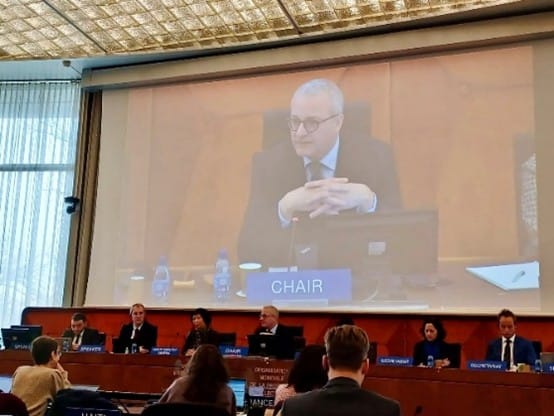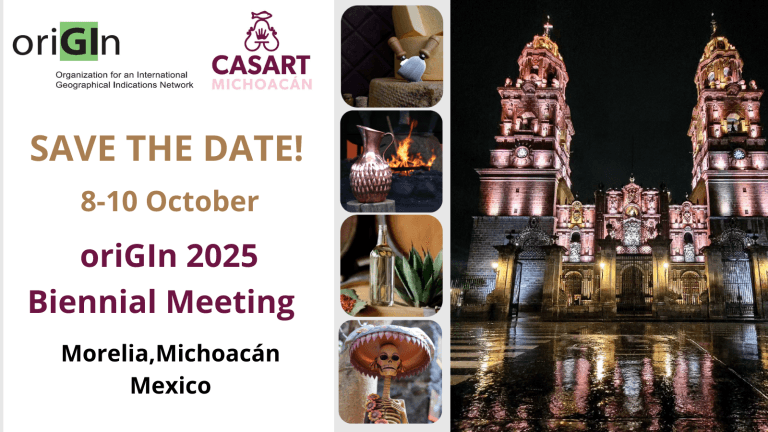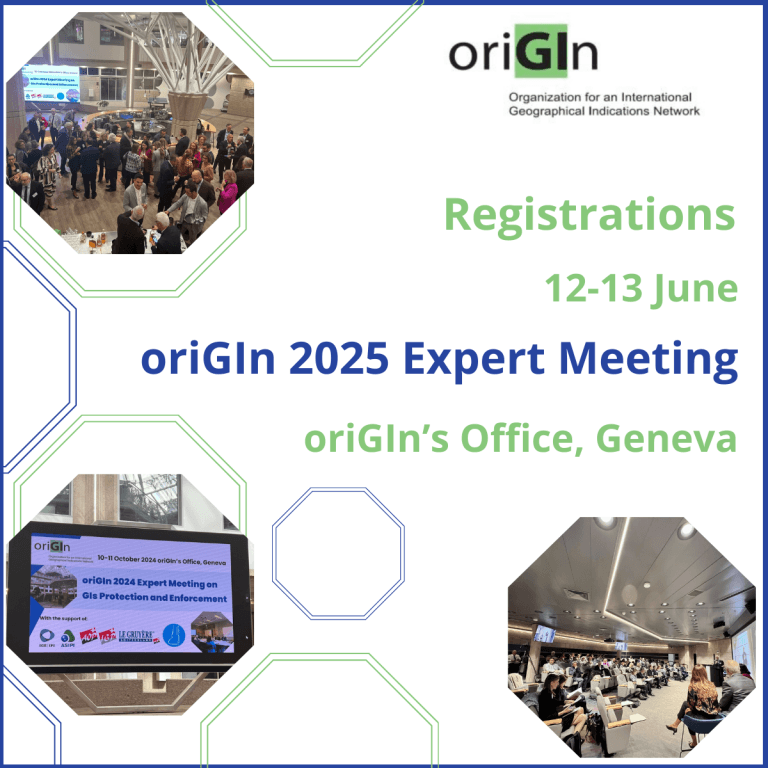
On March 18, the Working Group (WG) on the Development of the Lisbon System started its sixth session in Geneva. The first session of these series was launched in 2018. Looking back at the history of these sessions, in fact, there have been four different series of meetings of the Lisbon WG.
The first series, in 2000-2001, led to amendments to the Regulations of the Lisbon Agreement. The second series, between 2009 and 2014, prepared the revision of the Lisbon Agreement, adopted at the 2015 Diplomatic Conference in the form of the Geneva Act. A WG then worked, in 2016 and 2017, on Common Regulations for the Lisbon Agreement and the Geneva Act. Finally, since 2018, the WG on the Development of the Lisbon System has met five times prior to this meeting.
In this light, oriGIn interviewed Mr. Erik Thévenod-Mottet who was designated as President of the WG in 2022 and 2023 and is proposed for chairing the WG again in 2025 and 2026.
The “raison d’être” of the Lisbon Working Group
The first WG in 2002-2001 aimed at dusting off the Regulations in order to address some issues that emerged through time in the administration of the system, says Erik. Moreover, the intention was also to modernize the system, as it began to attract new members. Indeed, after decades of relative stagnation, ten new contracting parties joined the system between 2000 and 2015. There was then a new trend of development for the Lisbon System during these years which, in conjunction with the difficult negotiations on GIs at the WTO and a growing interest for GIs from many developing countries, opened a new chapter for international protection of GIs.
This is why the WIPO General Assembly took the decision, in 2008, to engage into a complete revision of the Lisbon Agreement, in order to update it and allow all countries to join the system. This was an extensive work that led to the Diplomatic Conference of 2015. After the adoption of the Geneva Act in 2015, it appeared necessary to fuse the Regulations of the Lisbon Agreement and those of the Geneva Act, in order to streamline the administration of the system.
From 2018, a WG on the development of the system has met five times. This WG works on modifications to be brought to the Regulations, at the light of the experience of the implementation of the Geneva Act that entered into force in 2020. In this regard, the focus of the sixth session will be on facilitating the administration of the system for the WIPO Registry as well as for the members on the matter of fees, adapting the definitions of refusals and grants of protection for more clarity and enhancing the processing of modifications of international registrations.
Just like launching an ocean liner
This sixth meeting of the WG is taking place at a pivotal moment in the development of the Lisbon System, indicates Erik. There is a significant increase in the number of transactions and the constant arrival of new members. Problems are emerging in the implementation of the system, precisely because it is starting to operate at full capacity. It is just like the launch of an ocean liner: as soon as it leaves the shipyard and is launched on water, minor repairs and improvements have to be made, which is normal. And now that the machinery is up and running and the liner is reaching cruising speed on the high seas, we realise that further adjustments are necessary and, above all, that the crew needs to be trained in navigation; that is normal too.
This is why, in addition to the proposed amendments to the Regulations, the WG meeting will focus on training activities (including on e-Lisbon) and exchange of information between members. On the basis of these exchanges, other subjects could be dealt with at a subsequent meeting of the WG.
Towards comprehension and convergence
All the members of the Lisbon System aim at enhancing and simplifying the administration of the system, in their own interest as competent authorities but also in the interest of their GIs beneficiaries. They may, nevertheless, have differing views on how to achieve this objective. The aim of the discussions that take place in the WG is to reconcile points of view through dialogue, as Erik mentions. But above all, it is more detailed information, clarifications and, sometimes, adjustments that enable a consensus to be reached.
The Lisbon System, under the Geneva Act, has only been in force for five years. This means that it is still in its infancy, especially given its particular features as a global WIPO system: on the one hand, it prescribes a standard of protection; on the other hand, it includes a number of options that make its administration all the more complex. If one also considers the specific features of GIs, there are many challenges to be addressed! In this context, the WG meeting is a highlight moment in the continuous process of support and exchange between the WIPO Secretariat, competent authorities in contracting parties and GIs beneficiaries.
My goal is to ensure an inclusive process
Information and understanding are keys for good decisions to be taken. My goal as a President is to facilitate exchanges, says Erik. This requires sometimes different formats: in addition to a training for members and a round-table that are organized together with the WG meeting stricto sensu this time, bilateral exchanges and side meetings are also elements of the dialogue. The President has to stand at the centre of all these exchanges and make the connection with the WIPO Secretariat. At the end, the process has to be inclusive!
For this WG meeting as well as for the future ones, says Erik, I hope that decisions will be taken which lighten and enhance the administration of the Lisbon System, that general understanding of the system and its current challenges will increase among members and non-members, and that some complex questions be either clarified or put on the table for a next WG meeting.


